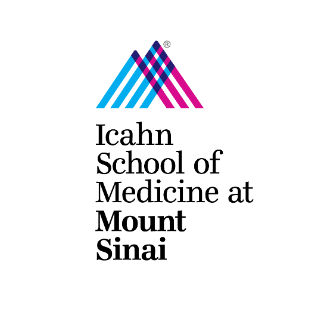预约演示
更新于:2026-02-26
Narazaciclib
更新于:2026-02-26
概要
基本信息
非在研机构- |
最高研发阶段临床2期 |
首次获批日期- |
最高研发阶段(中国)临床2期 |
特殊审评- |
登录后查看时间轴
结构/序列
分子式C24H27N7O |
InChIKeyVADOZMZXXRBXNY-UHFFFAOYSA-N |
CAS号1357470-29-1 |
关联
6
项与 Narazaciclib 相关的临床试验NCT06703255
A Phase IIa Clinical Study of HX301 Alone or in Combination with Temozolomide in Patients with High-Grade Glioma (Grade III and IV)
The study will include a dose-escalation and dose-expansion component to establish the recommended Phase 2 dose (RP2D) for HX301 in combination with Temozolomide and to evaluate the preliminary antitumor activity of HX301.HX301 is an investigational drug that has not yet been approved by the Food and Drug Administration (FDA) or any other regulatory authorities for commercial purposes.
开始日期2025-01-08 |
申办/合作机构 |
CTR20244225
HX301联合替莫唑胺治疗脑胶质母细胞瘤患者的IIa期临床研究
评价HX301联合替莫唑胺在治疗脑胶质母细胞瘤患者中的安全性,耐受性及抗肿瘤的疗效。
开始日期2024-12-31 |
申办/合作机构 |
NCT06351644
A Phase I/II Study to Assess the Safety and Tolerability of the Combination of Oral ON 123300 (Narazaciclib) and Dexamethasone in Patients With Relapsed and/or Refractory Multiple Myeloma
Multiple myeloma (MM) is a malignancy characterized by uncontrolled proliferation of plasma cells for which there is an urgent and unmet need to develop new, effective therapeutics. Onconova Therapeutics has developed a first-in-class oral inhibitor of CDK4 and ARK5 ON 123300 (NARAZACICLIB) which shows potent anti-myeloma activity in vitro and in vivo in preclinical models, and is undergoing evaluation in Phase 1-2 trials worldwide.
In this study, the researchers will test the safety and preliminary efficacy of inhibition of CDK4 and ARK5 by ON 123300 (NARAZACICLIB) in combination with dexamethasone in myeloma patients in a Phase I/II clinical trial.
In this study, the researchers will test the safety and preliminary efficacy of inhibition of CDK4 and ARK5 by ON 123300 (NARAZACICLIB) in combination with dexamethasone in myeloma patients in a Phase I/II clinical trial.
开始日期2024-10-02 |
100 项与 Narazaciclib 相关的临床结果
登录后查看更多信息
100 项与 Narazaciclib 相关的转化医学
登录后查看更多信息
100 项与 Narazaciclib 相关的专利(医药)
登录后查看更多信息
12
项与 Narazaciclib 相关的文献(医药)2025-02-13·ACS Medicinal Chemistry Letters
Development of the Pyrido[2,3-d]pyrimidin-7(8H)-one Scaffold toward Potent and Selective NUAK1 Inhibitors
Article
作者: Boffey, Helen K. ; Skidmore, John ; Aldred, Gregory G. ; Andrews, Stephen P. ; Willems, Henriette M. G. ; Scott, Helen ; Clarke, Jonathan H. ; Rooney, Timothy P. C. ; Voytyuk, Iryna ; Winpenny, David
The protein kinase NUAK1 has been implicated in various biological functions including cell adhesion, migration and proliferation. Genetic reduction of NUAK1 expression has notably been shown to lower total levels of human tau in a tauopathy mouse model, identifying this kinase as a potential therapeutic target for neurodegenerative disease. In this paper, we describe improvement of the NUAK1 potency, kinase-selectivity and pharmacokinetic properties of the brain-penetrant but unselective CDK4/CDK6/NUAK1 inhibitor ON123300. Through a scaffold-optimization approach we have identified different chemotypes delivering NUAK1 inhibition with improved potency and selectivity over CDK kinases compared with ON123300. We present ADME profiling and in vivo pharmacokinetic data for these compounds.
2024-07-01·Cell Reports
NUAK1 activates STAT5/GLI1/SOX2 signaling to enhance cancer cell expansion and drives chemoresistance in gastric cancer
Article
作者: Huang, Changming ; Fan, Denghui ; Wang, Jiabin ; Li, Ping ; Lin, Guangtan ; Weng, Kai ; Xie, Jianwei ; Cao, Longlong ; Zheng, Chaohui ; Chen, Yujing
The gene encoding the NUAK family kinase 1 (NUAK1) is frequently amplified and its expression is upregulated, activating oncogenic signaling in various cancers. However, little is known about its role in gastric cancer (GC). We investigate the mechanistic links among NUAK1, Hedgehog signaling, and tumorigenesis in GC. NUAK1 overexpression is validated in local and public GC cohorts. Patient-derived xenograft and transgenic mouse models demonstrate that NUAK1 depletion or inhibition dramatically ameliorates gastric tumorigenesis. NUAK1 upregulates GLI1 expression by activating STAT5-mediated transcription and stabilizing GLI1 protein. NUAK1 depletion or inhibition impairs cancer cell expansion, tumor formation, and chemotherapy resistance in in vitro and in vivo models. Clinicopathological analysis confirms that upregulated NUAK1 expression correlates with poor prognosis and chemotherapy resistance in human GC. Our findings demonstrate that the signaling axis NUAK1/STAT5/GLI1 promotes cancer cell expansion and tumorigenesis and indicate that NUAK1 is an attractive therapeutic target and prognostic factor in GC.
2022-04-01·Molecules and cells3区 · 生物学
Sertad1 Induces Neurological Injury after Ischemic Stroke via the CDK4/p-Rb Pathway
3区 · 生物学
Article
作者: Hu, Jianping ; Bu, Yujie ; Zhang, Yanfang ; Li, Bin ; Li, Jianxiong ; Guo, Jia ; Zhang, Hailin
SERTA domain-containing protein 1 (Sertad1) is upregulated in the models of DNA damage and Alzheimer's disease, contributing to neuronal death. However, the role and mechanism of Sertad1 in ischemic/hypoxic neurological injury remain unclear. In the present study, our results showed that the expression of Sertad1 was upregulated in a mouse middle cerebral artery occlusion and reperfusion model and in HT22 cells after oxygen-glucose deprivation/reoxygenation (OGD/R). Sertad1 knockdown significantly ameliorated ischemia-induced brain infarct volume, neurological deficits and neuronal apoptosis. In addition, it significantly ameliorated the OGD/R-induced inhibition of cell viability and apoptotic cell death in HT22 cells. Sertad1 knockdown significantly inhibited the ischemic/hypoxic-induced expression of p-Rb, B-Myb, and Bim in vivo and in vitro. However, Sertad1 overexpression significantly exacerbated the OGD/R-induced inhibition of cell viability and apoptotic cell death and p-Rb, B-Myb, and Bim expression in HT22 cells. In further studies, we demonstrated that Sertad1 directly binds to CDK4 and the CDK4 inhibitor ON123300 restores the effects of Sertad1 overexpression on OGD/R-induced apoptotic cell death and p-Rb, B-Myb, and Bim expression in HT22 cells. These results suggested that Sertad1 contributed to ischemic/hypoxic neurological injury by activating the CDK4/p-Rb pathway.
233
项与 Narazaciclib 相关的新闻(医药)2026-02-25
·证券之星
证券之星消息,截至2026年2月25日收盘,翰思艾泰-B(03378.HK)报收于18.0港元,下跌0.11%,成交量4.44万股,成交额80.58万港元。资金流向数据方面,2月25日翰思艾泰-B主力资金净流出32.94万港元,无超大单资金净流入,大单资金净流出32.94万港元,中单资金净流入4.9万港元,小单资金净流入5626.0港元。投行对该股关注度不高,90天内无投行对其给出评级。翰思艾泰生物医药科技(武汉)股份有限公司是一家主要从事肿瘤免疫疗法的研发的中国公司。该公司的产品管线有针对肿瘤学的临床阶段候选药物和临床前阶段候选药物,包括核心产品HX009及主要产品HX301及HX044,以及针对自身免疫和肿瘤市场的抗体偶联药物、双特异性抗体及单克隆抗体。HX009是一种自主研发的抗程序性细胞死亡蛋白1(PD-1)/信号调节蛋白α(SIRPα)双功能抗体融合蛋白。HX301是一种靶向集落刺激因子-1受体(CSF1R)、AMPK相关蛋白激酶5(ARK5)、FMS样酪氨酸激酶3(FLT-3)及细胞周期蛋白依赖性激酶4/6(CDK4/6)等关键通路的多靶点激酶抑制剂。HX044为一种新型双重功能抗细胞毒性T淋巴细胞相关蛋白4(CTLA-4)抗体SIRPα融合蛋白。以上内容为证券之星据公开信息整理,由AI算法生成(网信算备310104345710301240019号),不构成投资建议。
2026-02-19
Completed clinical results with
ratutrelvir
confirm a differentiated pro PAXLOVID
®
with fewer adverse events and no viral rebounds with equivalent time to sustained symptom resolution; results were recapitulated in PAXLOVID
®
-ineligible patients, representing a significant population with no effective treatment options
Pre-clinical analysis of
tivoxavir marboxil
tablets demonstrated significantly increased exposure compared to a prototype formulation with predicted 28-day protection in humans from influenza infections against a wide range of seasonal and pandemic variants
PK study of compressed
tivoxavir marboxil
tablets submitted under open IND in Australia and preparations are underway for a Human Influenza Prophylaxis Challenge Study in the UK
NEWTOWN, Pa., Feb. 19, 2026 (GLOBE NEWSWIRE) --
Traws Pharma, Inc.
(NASDAQ: TRAW, “Traws Pharma”, “Traws” or “the Company”), a clinical-stage biopharmaceutical company developing novel therapies to target critical threats to human health from respiratory viral diseases, today announced the completion of the clinical analysis of its 90-patient, open-label Phase 2 study of ratutrelvir, an investigational oral, ritonavir-free Mpro/3CL protease inhibitor, versus PAXLOVID
®
in patients with mild-to-moderate COVID-19, together with a single arm in PAXLOVID
®
-ineligible subjects. Patients ineligible to receive PAXLOVID
®
are frequently at elevated risk for severe disease and require suitable, safe and effective treatment options. Ratutrelvir has the potential to address this gap in care and may be a valuable therapeutic option.
Ratutrelvir Update
Designed as an active-controlled comparator trial versus PAXLOVID
®
(nirmatrelvir/ritonavir), the study evaluated patient-reported symptom outcomes, safety, and real-world usability. A separate treatment arm was comprised of patients ineligible for ritonavir-boosted regimens due to contraindications or clinically significant drug–drug interactions.
Patients in the ratutrelvir arm received ratutrelvir 600 mg orally once daily for 10 days, while patients in the comparator arm received PAXLOVID
®
, administered as nirmatrelvir 300 mg twice daily plus 100mg ritonavir twice daily for 5 days, consistent with approved prescribing information. Patients receiving ratutrelvir who were ineligible for PAXLOVID
®
reported fewer treatment-related adverse events (3 events in 30 subjects, 10%) compared to subjects receiving PAXLOVID
®
, (7 events in 30 subjects, 23.3%), and symptoms resolved more quickly in subjects taking ratutrelvir who were ineligible for PAXLOVID
®
, compared to PAXLOVID
®
treatment (HR, 1.31; 95% CI, 0.78-2.20,
p
=0.018).
“From a clinical perspective, the completed data analysis confirms that ratutrelvir may provide a meaningful benefit across a broader range of patients, including those who are unable to receive ritonavir-boosted therapy,” commented
Robert R. Redfield, MD, Chief Medical Officer
of Traws Pharma. “The favorable tolerability profile, together with a shortened time to symptom resolution and the absence of viral rebound events in ratutrelvir-treated patients, encourages and supports the continued clinical evaluation of ratutrelvir in both acute COVID-19 and in studies designed to better understand its potential impact on longer-term outcomes.”
“The combination of early and sustained symptom improvement, extended dosing duration, absence of viral rebound observed to date, and favorable tolerability supports the strategic hypothesis that ratutrelvir may have utility in reducing post-acute sequelae of SARS-CoV-2 infection (Long COVID),” commented
Dr. Redfield
. “By enabling earlier and potentially more complete viral clearance, without the limitations associated with ritonavir boosting, ratutrelvir may offer a differentiated approach to both acute COVID-19 treatment and prevention of longer-term complications”.
Tivoxavir Marboxil Update
The Company additionally announced progress in advancing an additional indication for tivoxavir marboxil (TXM), a potential best in class CAP-dependent endonuclease inhibitor, as a once-monthly, single oral tablet for prevention of seasonal influenza.
In prior Phase 1 studies in healthy volunteers, an unformulated powder-in-capsule formulation provided blood levels exceeding 3X EC
50
against a basket of common seasonal influenza variants up to 22 days after drug administration. A tablet formulation has been evaluated pre-clinically and demonstrated a 30% increase in exposure compared to the unformulated prototype. “Modelling of these data suggests that the tablet formulation should provide 28-day coverage, enabling a once-a-month prophylactic treatment,” commented
C. David Pauza, PhD, Chief Science Officer
of Traws Pharma. “We intend to advance these findings into a healthy volunteer study to be conducted under an open IND in Australia and, if the extended exposure is confirmed, we intend to progress TXM into a Seasonal Human Influenza Virus Prophylaxis Challenge Study,”
Dr. Pauza
continued.
Separately, the FDA informed the Company that its US IND for tivoxavir marboxil was being placed on clinical hold due to concerns with the mutagenicity data package. The FDA intends to communicate its concerns formally, together with suggested mitigation steps, by March 16, 2026.
Dr. Redfield
commented, “This IND application was originally filed to enable a complete review by the Biomedical Advanced Research and Development Authority (BARDA) of the Company’s application for inclusion in the strategic stockpile for the treatment of avian influenza. While the clinical hold does not directly impact ongoing and planned studies outside of the United States, Traws Pharma appreciates the FDA concern and is working to mitigate this issue in our clinical development plan.”
“Collectively, the advancement of our antiviral portfolio provides a number of significant value inflection points and could provide treatment and prevention options for clinically important viral diseases,” commented
Iain Dukes, MA, DPhil, Chief Executive Officer
of Traws Pharma.
About Ratutrelvir
Ratutrelvir is an investigational oral, small molecule Mpro (3CL protease) inhibitor designed to be a broadly acting treatment for SARS-CoV-2/COVID-19 that is used without ritonavir. It has demonstrated
in vitro
activity against a range of virus strains. Preclinical and Phase 1 studies show that ratutrelvir does not require co-administration with a metabolic inhibitor, such as ritonavir, which could avoid ritonavir-associated drug-drug interactions
1
, and potentially enable wider patient use. Phase 1 data also show that ratutrelvir’s pharmacokinetic (PK) pro maintenance of target blood plasma levels approximately 13 times above the EC
50
using the target Phase 2 dosing regimen of 600 mg/day for ten days, which may also reduce the likelihood of clinical rebound and, consequently, reduce the risk for Long COVID
2
. Industry data indicate that COVID treatment represents a potential multi-billion dollar market opportunity
3
.
About Tivoxavir Marboxil
Tivoxavir marboxil (TXM) is an investigational oral, small molecule CAP-dependent endonuclease inhibitor designed to be administered as a single-dose for the treatment of bird flu and seasonal influenza. It has shown potent
in vitro
activity against a range of influenza strains in preclinical studies, including a human isolate of the highly pathogenic avian flu H5N1 (bird flu). Consistent, positive preclinical data from three animal species indicate that a single dose of TXM demonstrated a therapeutic effect against H5N1 bird flu. Seasonal influenza represents an estimated multi-billion dollar antiviral market opportunity, largely driven by global health organizations, practice guidelines and government tenders and inclusion in drug stock piling initiatives
4,5
, with upside potential from potential pandemic flu outbreaks including H5N1 bird flu. We believe that these data support further development of TXM as a treatment for bird flu.
Source information
Carly Herbert et al. (2025) Clinical Infectious Diseases.
Pfizer Inc. annual report on Form 10-K for the fiscal year ended December 31, 2025, filed with the U.S. Securities and Exchange Commission on February 3, 2026
Per link
TRAW data on file
Third-party products mentioned herein are the trademarks of their respective owners.
About Traws Pharma, Inc.
Traws Pharma is a clinical stage biopharmaceutical company dedicated to developing novel therapies to target critical threats to human health in respiratory viral diseases. Traws integrates antiviral drug development, medical intelligence and regulatory strategy to meet real world challenges in the treatment of viral diseases. We are advancing novel investigational oral small molecule antiviral agents that have potent activity against difficult to treat or resistant virus strains that threaten human health: COVID-19/Long COVID and bird flu and seasonal influenza. Ratutrelvir is in development as a ritonavir-independent COVID treatment, targeting the Main protease (Mpro or 3CL protease). Tivoxavir marboxil is in development as a single dose treatment for bird flu and seasonal influenza, targeting the influenza cap-dependent endonuclease (CEN).
Traws is actively seeking development and commercialization partners for its legacy clinical oncology programs, rigosertib and narazaciclib. More details can be found on Traws’ website at
.
For more information, please visit and follow us on LinkedIn.
Forward-Looking Statements
Some of the statements in this release are forward-looking statements within the meaning of Section 27A of the Securities Act of 1933, as amended, Section 21E of the Securities Exchange Act of 1934, as amended, and the Private Securities Litigation Reform Act of 1995, and involve risks and uncertainties including statements regarding the Company, its business and product candidates, including the potential opportunity, market size, benefits, effectiveness, safety, and the clinical and regulatory plans for ratutrelvir and tivoxavir marboxil, as well as plans for its legacy programs. The Company has attempted to identify forward-looking statements by terminology including “believes”, “estimates”, “anticipates”, “expects”, “plans”, “intends”, “may”, “could”, “might”, “will”, “should”, “preliminary”, “encouraging”, “approximately” or other words that convey uncertainty of future events or outcomes. Although Traws believes that the expectations reflected in such forward-looking statements are reasonable as of the date made, expectations may prove to have been materially different from the results expressed or implied by such forward looking statements. These statements are only predictions and involve known and unknown risks, uncertainties, and other factors, including the outcome of Traws’ IND filing with the FDA, including the current FDA clinical hold for tivoxavir marboxil; the success and timing of Traws’ clinical trials; the potential efficacy of ratutrelvir for the treatment of COVID-19, including the potential to reduce the risk of COVID rebound and Long COVID; the potential for ratutrelvir to gain market acceptance, if and when regulatory approval is obtained, or to become the new standard of care; Traws’ interactions with the FDA, BARDA and similar foreign regulators; collaborations; market conditions; regulatory requirements and pathways for approval; the ongoing need for improved therapy to reduce the frequency of clinical rebound and the concomitant risk for Long COVID; the extent of the spread and threat of the bird flu; the Company’s cash projections; Traws’ ability to raise additional capital when needed; and those discussed under the heading “Risk Factors” in Traws’ filings with the U.S. Securities and Exchange Commission (SEC). Any forward-looking statements contained in this release speak only as of its date. Traws undertakes no obligation to update any forward-looking statements contained in this release to reflect events or circumstances occurring after its date or to reflect the occurrence of unanticipated events, except to the extent required by law.
Traws Pharma Contact:
Charles Parker
Traws Pharma, Inc.
cparker@trawspharma.com
Investor Contact:
John Fraunces
LifeSci Advisors, LLC
917-355-2395
jfraunces@lifesciadvisors.com
临床结果临床1期临床2期
2026-02-16
·证券之星
证券之星消息,截至2026年2月16日收盘,翰思艾泰-B(03378.HK)报收于19.2港元,上涨0.21%,成交量5.67万股,成交额108.7万港元。资金流向数据方面,2月16日翰思艾泰-B无主力资金净流入,无超大单资金净流入,无大单资金净流入,中单资金净流入37.46万港元,小单资金净流入5.47万港元。投行对该股关注度不高,90天内无投行对其给出评级。翰思艾泰生物医药科技(武汉)股份有限公司是一家主要从事肿瘤免疫疗法的研发的中国公司。该公司的产品管线有针对肿瘤学的临床阶段候选药物和临床前阶段候选药物,包括核心产品HX009及主要产品HX301及HX044,以及针对自身免疫和肿瘤市场的抗体偶联药物、双特异性抗体及单克隆抗体。HX009是一种自主研发的抗程序性细胞死亡蛋白1(PD-1)/信号调节蛋白α(SIRPα)双功能抗体融合蛋白。HX301是一种靶向集落刺激因子-1受体(CSF1R)、AMPK相关蛋白激酶5(ARK5)、FMS样酪氨酸激酶3(FLT-3)及细胞周期蛋白依赖性激酶4/6(CDK4/6)等关键通路的多靶点激酶抑制剂。HX044为一种新型双重功能抗细胞毒性T淋巴细胞相关蛋白4(CTLA-4)抗体SIRPα融合蛋白。以上内容为证券之星据公开信息整理,由AI算法生成(网信算备310104345710301240019号),不构成投资建议。
100 项与 Narazaciclib 相关的药物交易
登录后查看更多信息
研发状态
10 条进展最快的记录, 后查看更多信息
登录
| 适应症 | 最高研发状态 | 国家/地区 | 公司 | 日期 |
|---|---|---|---|---|
| 高级别胶质瘤 | 临床2期 | 中国 | 2025-01-08 | |
| 胶质母细胞瘤 | 临床2期 | 中国 | 2024-12-31 | |
| 子宫内膜样腺癌 | 临床2期 | 美国 | 2023-03-29 | |
| 转移性子宫内膜恶性肿瘤 | 临床2期 | 美国 | 2023-03-29 | |
| 转移性乳腺癌 | 临床2期 | 美国 | - | |
| 实体瘤 | 临床2期 | - | - | |
| 晚期癌症 | 临床1期 | 美国 | 2021-05-13 | |
| 晚期恶性实体瘤 | 临床1期 | 中国 | 2020-09-04 | |
| 套细胞淋巴瘤 | 临床前 | 美国 | 2023-12-12 |
登录后查看更多信息
临床结果
临床结果
适应症
分期
评价
查看全部结果
| 研究 | 分期 | 人群特征 | 评价人数 | 分组 | 结果 | 评价 | 发布日期 |
|---|
临床1期 | 20 | HX301 80mg | 網網襯觸艱積鹽觸繭醖(鏇鏇獵構壓艱鑰簾鏇夢) = 2 patients in the 200 mg group. 窪襯鬱簾窪淵醖獵糧壓 (餘壓廠壓遞窪鬱簾淵鏇 ) 更多 | 积极 | 2024-05-24 |
登录后查看更多信息
转化医学
使用我们的转化医学数据加速您的研究。
登录
或

药物交易
使用我们的药物交易数据加速您的研究。
登录
或

核心专利
使用我们的核心专利数据促进您的研究。
登录
或

临床分析
紧跟全球注册中心的最新临床试验。
登录
或

批准
利用最新的监管批准信息加速您的研究。
登录
或

特殊审评
只需点击几下即可了解关键药物信息。
登录
或

生物医药百科问答
全新生物医药AI Agent 覆盖科研全链路,让突破性发现快人一步
立即开始免费试用!
智慧芽新药情报库是智慧芽专为生命科学人士构建的基于AI的创新药情报平台,助您全方位提升您的研发与决策效率。
立即开始数据试用!
智慧芽新药库数据也通过智慧芽数据服务平台,以API或者数据包形式对外开放,助您更加充分利用智慧芽新药情报信息。
生物序列数据库
生物药研发创新
免费使用
化学结构数据库
小分子化药研发创新
免费使用



